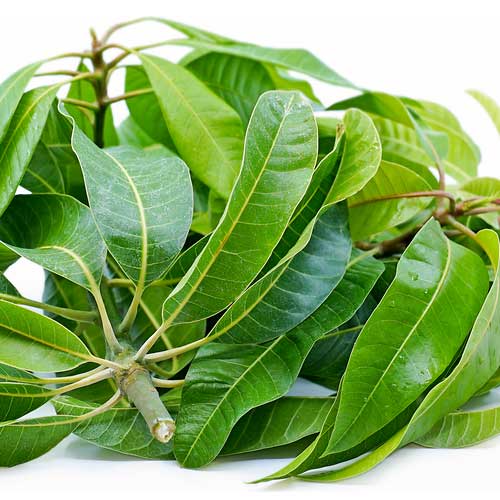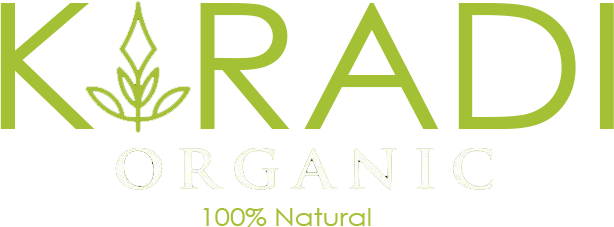
Mango leaves are also delicious; however, most people are only familiar with the mango tree’s luscious fruit.
The Anacardiaceous family includes mango leaves, which are formally known as Mangifera Indica. When young, they are reddish-green or purplish-green, and as they become older, they turn a darker green color.
A variety of illnesses, including diabetes, bronchitis, diarrhea, asthma, scabies, respiratory issues, syphilis, and urinary abnormalities have been treated using mango leaf preparations traditional.
How Should Mango Leaves Be Eaten?
Mango leaves can be consumed in three various ways. Here are several simple ways to bring this helpful leaf into your daily life.
- Mango leaves in powder mango
Leaves only need to be dried and processed in a blender. Mango leaf powder can be taken once a day with water and 1-2 teaspoons, or as prescribed by a doctor.
- Tea with mango leaves
Boil 10–12 mango leaves in 150–200 ml of water. You can drink the mixture once it has been reduced to half. If you do not like the flavor, add little honey to sweeten it.
- Mango Leaves water
In 50 milliliters of water, soak 3 to 4 mango leaves. Give it a night. Take this mixture in the morning.
Nutritional content in mango leaves
Nutrients like vitamin C, vitamin A, and vitamin B are abundant in mango leaves. Other substances found in it include steroids, alkaloids, thiamine, riboflavin, phenol, beta-carotene, and flavonoids. Terpenoids and polyphenols, which are botanical chemicals that protect against disease and reduce inflammation in the body, are abundant in mango leaves.
Benefits of Mango Leaves
- Promotes skin health
Mango leaves’ nutritional content promotes skin health. All the nutrients necessary for healthy skin are present in mango leaves. Mango leaf extract can lessen wrinkles, age spots, and skin dryness. Additionally, it promotes the growth of collagen, which may lessen facial wrinkles and fine lines.
Mango leaves have antimicrobial qualities that aid in the treatment of skin burns and bacterial skin illnesses including staph infections. The mango leaves have vital nutrients and qualities that aid in the healing of skin scalds and burns. Mango leaves contain anthocyanin, which instantly soothes burns.
- Control blood sugar levels.
In diabetic people, mango leaves are quite effective at controlling blood sugar levels. The tannins found in those leaves, known as anthocyanidins, may aid in the treatment of type 1 diabetes. Ethyl acetate and 3beta taraxerol, which assist cure hyperglycemia, are also present.
- Treat kidney and gallstones
Gallstones and kidney stones are treated with mango leaf powder. It aids in kidney stones’ disintegration and aids in removing them from the body through urination. For detoxifying the body of toxic poisons, the leaves are ideal.
- Fights agitation
Mango leaves can serve as a useful natural cure for anxiously restless persons. Some mango leaves can be added to the bathwater. Your body will feel refreshed and relaxed as a result.
- Fantastic for hair issues
An age-old method of hastening hair development involves using mango leaves. The leaves are full of vitamins C and A, which increase the formation of collagen, which is vital for having healthy hair. Your drab hair gets a gloss due to it.
Mango leaves can help when your hair has been harmed by chemicals. Mango leaves contain flavonoids that can naturally dye hair black.
- Blood Pressure is reduced
Mango leaves offer anti-hypertensive effects, which may help decrease blood pressure. They assist in healing varicose veins and strengthening blood vessels.
- Respiratory conditions
The mango leaves can help with a variety of respiratory issues. It is particularly beneficial for those with colds, bronchitis, and asthma. Coughs can be efficiently treated by drinking a decoction produced from boiling mango leaves in water with some honey. It also aids in the recovery of voice loss.
- Treats dysentery
Bleeding dysentery can be treated with mango leaves. To prevent dysentery, mango leaves should be powdered and consumed with water twice to three times per day.
- Ear pains
It can be annoying to have ear pain. This home treatment works well to relieve pain. An earache can be relieved with a teaspoon of mango leaf juice applied as eardrops. Before utilizing the juice, slightly warm it up.
- Halts Hiccups
A serious threat, hiccups can strike at any time. Nothing appears to work successfully, despite strange suggestions like holding your gargling with water. Inhaling smoke from burning mango leaves is another natural cure to try if the hiccups do not appear to go away. This is supposed to assist in curing hiccups.
- Soothes burns
Applying mango leaf ashes to the injured region is the quickest way to treat excruciating burns. This relieves the skin’s discomfort and calms it.
- Help with weight loss
You can include mango leaves in your diet to help you lose weight. It turns out that the enzyme papain and the hormone leptin, which are both known to improve digestion and control the build-up of fat in the body, are present in mango leaves.
- Anti-cancer attributes
Similar to the fruit, mango leaves are a rich source of antioxidants such as polyphenols and terpenoids that have anti-cancer potential. Free radicals, which can harm cells and cause diseases such as cancer and several other problems, are prevented by antioxidants.
- Anti-Inflammatory Properties
Mango leaves are also noteworthy for their abundance of anti-inflammatory qualities. It provides a wonderful method for safely treating any kind of skin inflammation.
- Boosts Libido
Vitamin E, a sex hormone found in mango leaves, aids in enhancing sexual desire.
- Get Rid of The Toxins
Mango leaves should be soaked in water and left for the night. On an empty stomach, consume this mixture in the morning. This is excellent for your digestive system and aids in the elimination of toxins from your body.
Last Remarks
Mango leaves offer therapeutic and antimicrobial qualities. Don’t forget to periodically add those leaves to your supper because they are edible. Drink water that has been infused with mango leaves if you’ve ever felt restless. Mango leaves are quite useful for enhancing our general health. This leaf provides a wide range of health advantages, including the relief of respiratory conditions and the removal of toxins from our bodies.
FAQs
- Do mango leaves have any poison?
Mango leaves are typically regarded as safe to eat and are not harmful.
- Are mango leaves safe to consume raw?
If fresh, raw mango leaves are accessible in your area, you can consume them.
- How are mango leaves preserved?
Mango leaves can be readily preserved by putting them in a plastic bag and storing them in the refrigerator. These leaves can be kept for a few days in this manner without losing any of their nutritional value.
- Kidney stones—can they be cured by mango leaves?
Yes, there is a compound in mango leaves that efficiently treats both kidney and gallstones. The substance aids in breaking up the stones so that the body can eliminate them through urination. Mango leaf can be used to help the body get rid of toxins of various kinds, not simply kidney stones.
- Can mango be applied to the face?
You may use mango as a de-tanner on your face, and it will do wonders for your skin. Take one mango pulp and combine it with one teaspoon of lemon juice to make this. After 15 minutes, wash your tanned face with cool water after applying this paste. Instantly, a de-bronzed face will be seen.






